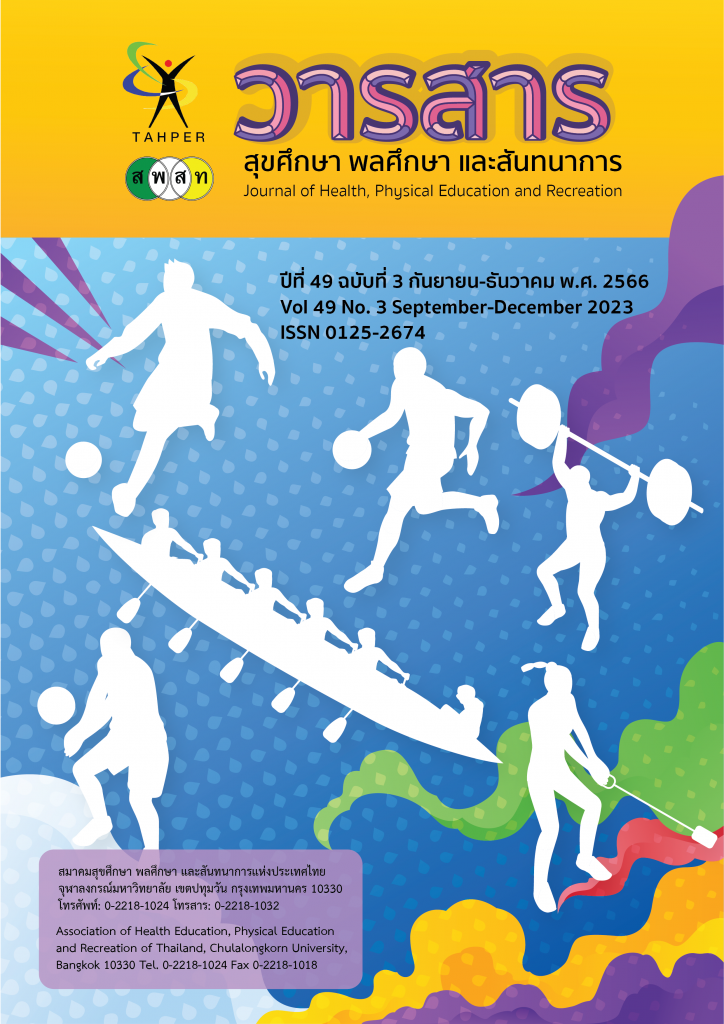
Abstract
The purpose of this research was to study and compare the effects of progressive plyometric training on muscle mass, agility, and futsal dribbling ability of students at Phetchabun Rajabhat University. The sample consisted of 30 students, males aged between 18-23 years, by purposive sampling. The samples were divided into 2 groups of 15 students each by a random matching method. The experimental group trained in progressive plyometric training, and the control group was not trained. The duration of the experiment was 4 weeks, 3 days each. The instrument used in this study was a progressive plyometric training program. Analyze the data by average, standard deviation, and compare the difference before and after the experimental group, by statistics Paired sample t-tests, and compare the difference between the experimental group and the control group, by statistics Independent sample t-test, the statistical significance level is set up at p ≤ .05.
The results showed that comparing the differences in muscle mass, agility, and futsal dribbling ability before and after the experimental group. There were no differences in muscle mass (t = -1.33, p = 0.10). However, the agility (t = 9.42, p = 0.00) and dribbling ability of futsal (t = 7.62, p = 0.00) was significantly different at p ≤ .05, and compare the difference between the experimental group and the control group, muscle mass (t = -0.44, p = 0.33) were not different. However, the agility (t = -3.21, p = 0.00) and futsal dribbling ability (t = -5.54, p = 0.00) was significantly different at p ≤ .05.
The research results have shown that 4 weeks of progressive plyometric training is effective in improving agility and futsal dribbling ability, but does not affect the muscle mass of students at Phetchabun Rajabhat University.
Keywords : Plyometric, Muscle Mass, Agility, Futsal Dribbling
Subscribe
Login
0 Comments
Oldest
![]()





 Views Today : 57
Views Today : 57 Views Yesterday : 94
Views Yesterday : 94 Views This Month : 1162
Views This Month : 1162 Views This Year : 4917
Views This Year : 4917 Total views : 73554
Total views : 73554